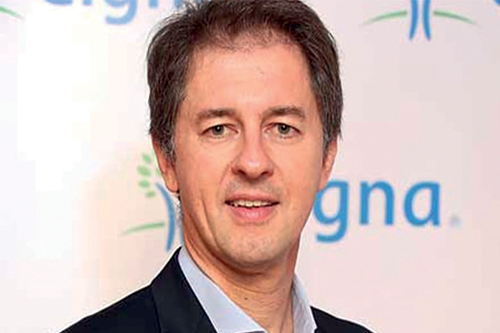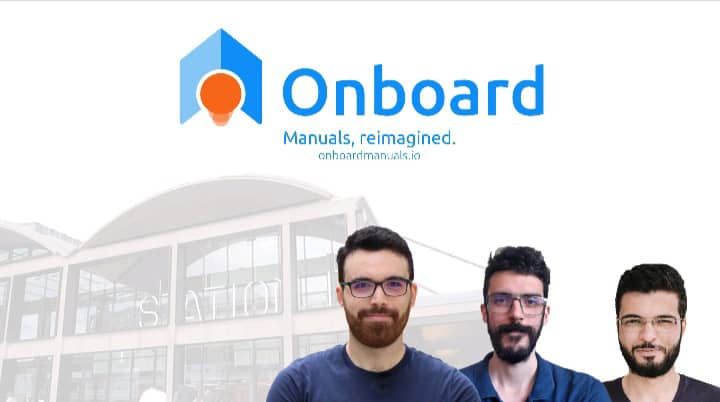CrossBoundary Energy Raises $40M to Scale Financed Solar for Businesses in Africa
Pan African energy firm driving energy transition across the continent, CrossBoundary Energy is currently operating or delivering $57M in assets, serving 20 customers across 8 countries in Africa, including more than 40MW of fully financed solar PV and 10 MWh of battery storage projects; transaction provides an exit for initial investors at 15% IRR and provides a powerful proof of concept for blended finance, returning a profit to the US Treasury on USAID’s catalytic first-loss contribution; $40M of new funding enables the scaling of CrossBoundary Energy’s commercial and industrial solar services to provide many more African businesses with access to cheaper, cleaner power ; support from institutional investors and ongoing adoption by leading corporates highlights the viability and attractiveness of distributed generation.

CrossBoundary Energy (CBE) has announced the exit of its first fund at a 15% net IRR to investors. ARCH Emerging Markets Partners’ Africa Renewable Power Fund (ARCH ARPF) is providing $40M in new equity funding to exit initial investors and support CrossBoundary Energy to continue to develop, construct and operate distributed commercial & industrial (C&I) solar projects that will provide businesses across Africa with access to cheaper, cleaner power. This exit and new investment is a powerful endorsement for the role of distributed renewables in Africa and the potential of blended finance in unlocking new asset classes.
Read also:Inflation Fear Grips Nigerians as Govt. Hikes Fuel, Energy Price By Kelechi Deca
First, the substantial raise of new capital highlights the exciting potential of distributed solar to provide more reliable and affordable power to African businesses. Over the last five years, CBE has pioneered the creation of a C&I solar sector in Africa. CBE’s solar-as-a-service model allows corporate customers to avoid the upfront capital expenditure and technical risk that can be a barrier to solar adoption. Instead, customers enter into long-term solar service agreements under which CBE (in partnership with local developers and solar contractors) finances, installs and operates solar assets to provide customers with cleaner and cheaper power. CBE signed the first distributed solar power purchase agreements with corporate customers in Kenya, Rwanda, Ghana, Madagascar, Uganda, Sierra Leone, Zambia and Nigeria, and has built a strong client base with both multinational companies, including Unilever, Diageo, Coca-Cola distributors, Rio Tinto, Heineken, AB InBev, Actis, and leading local companies including Kasapreko and Xflora Group. CBE is now operating or delivering $57M in assets, serving 20 customers across 8 countries in Africa, including more than 40MW of fully financed solar PV and 10 MWh of battery storage projects.
Read also:Zimbabwe’s highly indebted power utility firm begins clearing coal producers’ $1.2bn debt
Second, the exit of CrossBoundary Energy I (CBE1) is also a powerful demonstration of the potential of blended finance to unlock new and impactful asset classes. CBE1 was closed in November 2015 as Africa’s first dedicated fund for C&I solar. It was also a prototype for a new blended finance approach to renewables in Africa. USAID’s Power Africa initiative contributed $1.3M in the form of a repayable grant to catalyse private investors into the fund. USAID’s subordinated equity contribution attracted additional equity investors, effectively resulting in leverage of matching private capital of more than 6.0x. At the close of this transaction, this leverage increased to more than 30x and USAID’s blended finance contribution of $1.3M has now been repaid to the US Treasury with a return of 5%. CBE1 also benefited from grant support from OPIC (now the US International Development Finance Corporation) and the Shell Foundation, in partnership with the UK’s Foreign, Commonwealth & Development Office, which allowed the fund to scale its operations.
Read also:America’s Kariya Energy to Acquire Oil and Gas Assets in Africa
Pieter Joubert, Chief Investment Officer, CrossBoundary Energy says, “We are incredibly grateful for the early stage backing we received from our partners and investors such as Blue Haven Initiative, Ceniarth, Slocum Investments, Treehouse Investments and others, who trusted in our vision to bring cheap, clean energy to businesses across the continent and continued to support and work with us to realise that vision. In terms of what comes next, partnering with an industry-leading investor like ARCH ARPF highlights the proven viability of captive commercial and industrial solar projects in Africa. We’re very excited to work with ARCH ARPF to continue providing Africa’s leading businesses with cheaper, cleaner, more reliable power at no upfront cost. This commitment by ARCH ARPF represents the next phase of a larger $100M transaction which will allow us to take the C&I sector to scale across Africa, and in doing so, further reduce energy costs for our customers, create additional jobs within the solar sector, and significantly reduce carbon emissions.”
William Barry, Managing Director, ARCH ARPF, says, “We believe that distributed renewables will be an important part of the energy future in Africa. The lower cost for solar and storage means that companies like CrossBoundary Energy can offer retail consumers reliable, cost-effective solutions to their electricity needs. At ARCH ARPF, we aim to partner with strong management teams and invest in scalable business models that offer compelling alternatives to their customers, including in the C&I space. CBE has been able to grow a portfolio of high-quality assets and their growth continues to rapidly accelerate. We are excited to support them to scale.”
Read also:Kenya Power appoints Elizabeth Rogo to its Board
Mark Carrato, Coordinator of the U.S. Government-led Power Africa initiative, says, “Power Africa supports enterprise-led market innovations to address Africa’s energy challenges. CrossBoundary Energy’s model of distributed renewables to accelerate access to cheaper and cleaner power is an excellent example of this. In 2015, Power Africa made a repayable $1.3 million first-loss grant contribution to catalyze the creation of the CrossBoundary Energy I Fund. While the grant initially unlocked six times that amount in matching private capital, it has now leveraged 30 times our contribution from private investors. Moreover, the initial $1.3 million plus 5% interest has been returned to the U.S. Treasury. This success is a validation of Power Africa’s emphasis on helping catalyze the private sector to provide life-changing access to electricity across sub-Saharan Africa.”
Sam Parker, CEO of Shell Foundation, says “The mission of the Shell Foundation is to build investable businesses that enhance access to energy for low-income communities across Africa and Asia. CrossBoundary Energy is having a major impact through the provision of lower cost, cleaner and more reliable power to African enterprises. We are proud that our early stage support helped them reach commercial viability and scale.”
Kelechi Deca

Kelechi Deca has over two decades of media experience, he has traveled to over 77 countries reporting on multilateral development institutions, international business, trade, travels, culture, and diplomacy. He is also a petrol head with in-depth knowledge of automobiles and the auto industry










